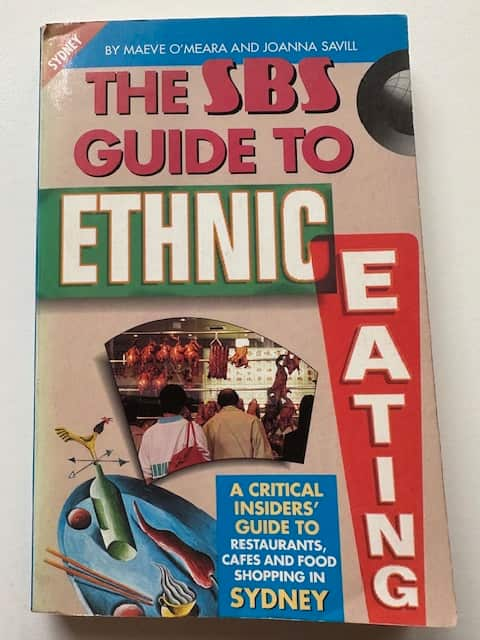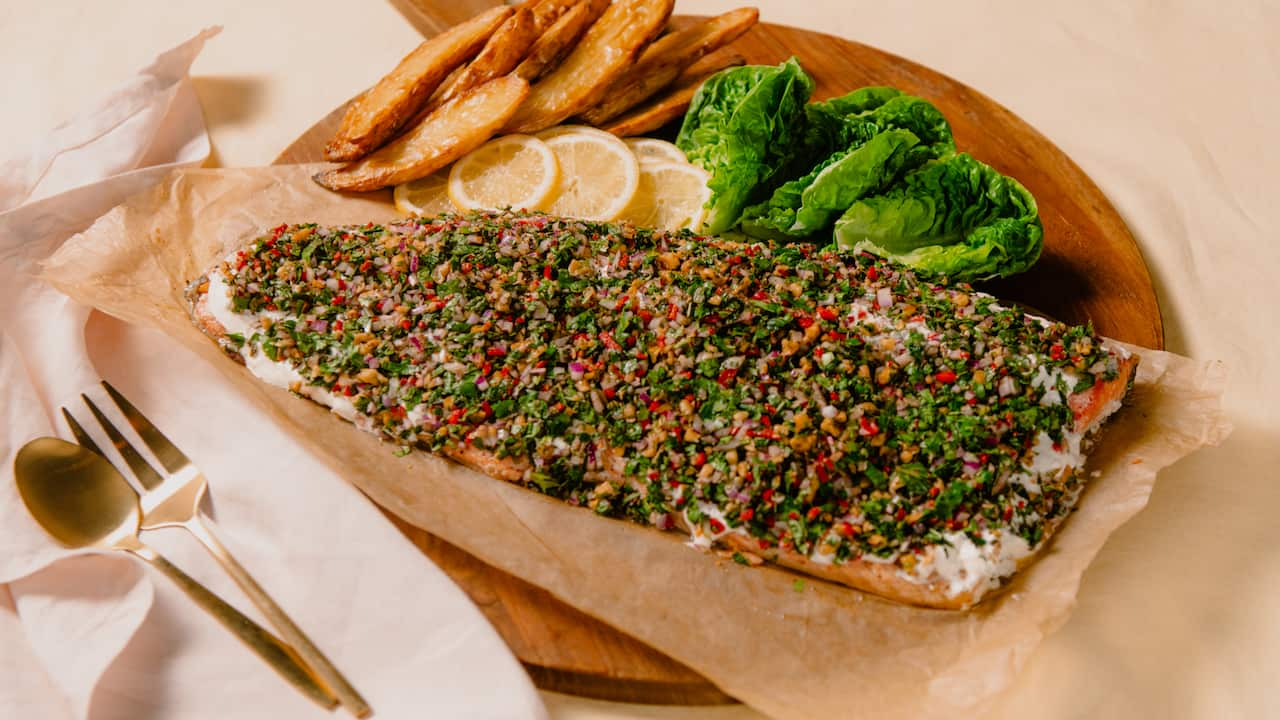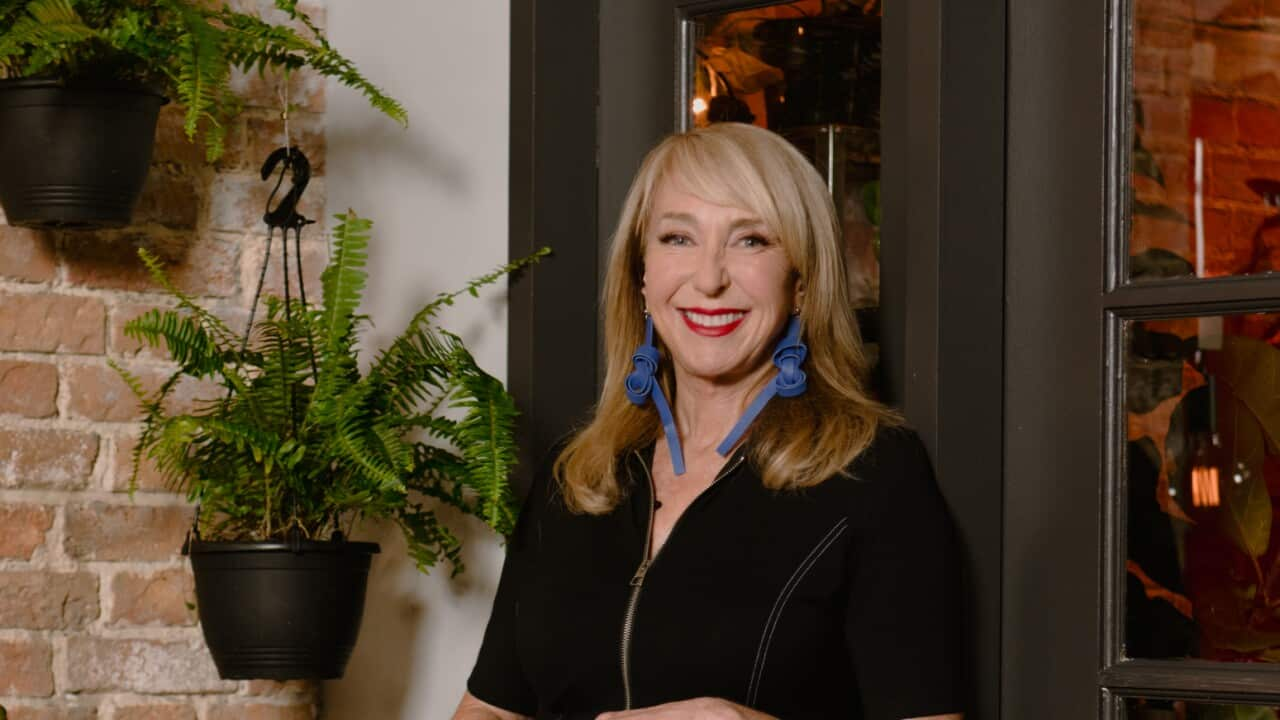Maeve O’Meara knows a thing or two about the Australian food landscape. The journalist, TV host, author, and culinary tour operator has spent three decades celebrating the diversity of what we eat, and the communities behind it.
While many know her as the host of Food Safari and co-host of The Food Lovers’ Guide to Australia, O’Meara’s relationship with food and culture began long before those series hit our screens. In fact, she joined SBS in the early 1990s, first as part of the Dateline team, and quickly found herself drawn to the network’s cultural heartbeat.
“Walking through the doors of SBS, I really felt I'd found my people. And there were so many excursions that we’d do. One of the Greek subtitlers would take a small group of us out into the taverns and then into Greek nightclubs where they'd light whiskey on the dance floor and smash plates,” she recalls.
Alongside Joanna Savill, she went on to create The SBS Guide to Ethnic Eating, a pioneering publication that captured the rich, multicultural dining landscape of Australia. While it may seem like every cuisine is now just a click or street away, O’Meara says that Australians were already curious about global flavours back then, but they often needed a little guidance.

“In some ways, it was richer. There were distinct Spanish areas in both Sydney and Melbourne. Over the years, they have dissipated, and we've probably got more general Spanish influence in the food that we eat, but those distinct areas have disappeared,” she explains.
“There were also these ethnic clubs where you could go and find really interesting food. The Russian clubs were just the biggest fun night out where you'd come in and there'd be caviar on the tables and a bottle of vodka and you'd be tasting all sorts of things, from dumplings through to Russian salad to interesting desserts. And in a heartbeat, everybody would be on the dance floor. These were wild, interesting days!”
A more informed appetite
So, how has the food scene changed since those early days?
“In the past 30 years, people have travelled more, and they've found foods that they've really enjoyed overseas and wanted to find them back here in Australia,” she says.
“We have learned more about our favourite cuisines, like Italian. We know now it’s not just Italian, we're more au fait with their different regions. Same with Chinese or Indian.”
She’s also seen rising enthusiasm for cuisines like Japanese, Korean and Mexican.
She remembers during the early days of her Gourmet Safaris tours (which have been going strong for over two decades) how a Korean banquet with kimchi was new and unfamiliar to many guests.
“Now, we all know what gochujang is, and kimchi is sold in Harris Farm. It’s a lot more mainstream,” she says, smiling.
What makes Australia special
For O’Meara, Australia’s greatest food asset is its incredible diversity, and our openness to exploring it.
Australia is one of the ultimate food countries on earth. I love our keenness to go and explore.
Markets are her favourite place to discover new flavours. She also loves areas like the Dandenong, where it feels like you can “jump from country to country” just by wandering through different shops and eateries.
And she’s quick to point out that regional Australia has more to offer than ever.
What she eats at home and beyond
Unsurprisingly, O’Meara’s home kitchen is a reflection of Australia’s multicultural food culture.
Her partner is Lebanese, so they often share meals of dips, salads and meats grilled over fire. And if you're wondering is Maeve O'Meara a chef – she may not be one, but she is as accomplished a cook as they come, having immersed herself in the world of food for so long.
One of her go-to dishes is salmon tarator, a tribute to the late chef Greg Malouf, known as Australia's “godfather of Middle Eastern cuisine”. She shares the recipe on The Cook Up with Adam Liaw.

After returning from her overseas tours, she finds herself craving something spicy and comforting, like a bowl of Malaysian har mee.
“It puts everything back together. And I know that I can have a whole range of cuisines here, whereas the areas that I've travelled in might have really great Sardinian or Sicilian or Corsican food, but they don't have the range of food that we have. So, I always come back and kiss the ground,” she says.
Unsurprisingly, her pantry is a rotating snapshot of her travels and the neighbourhood discoveries she has dedicated so much of her career to championing.
“Last weekend, I came back with a wedge of Manchego. I have some aged basmati rice from an Afghan grocer. I've got some really nice streaky bacon from the English butcher in Dandenong. Some weeks it's Vietnamese, some weeks it's Afghan. The list of what we eat at home goes on and on,” she says.
In a country where dinner might mean dumplings, tacos or tarator, Maeve O’Meara sees our evolving food story as a reflection of who we are, and who we’re becoming.
SBS Food is a 24/7 foodie channel for all Australians, with a focus on simple, authentic and everyday food inspiration from cultures everywhere. NSW stream only. Read more about SBS Food
Have a story or comment? Contact Us

